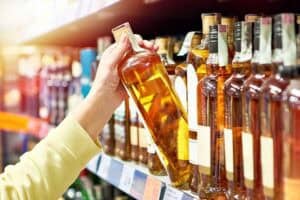TRACIT’s report, 'Prohibition, illicit alcohol and lessons learned form lockdown', recommends that prohibition laws as an emergency response be avoided.

Research conducted in areas with strict alcohol laws during Covid-19 has found a direct link between legislation and the emergence of illicit markets.
The Transnational Alliance to Combat Illicit Trade (TRACIT) has found that these illicit markets also have the potential to plunge entire industries into “a financial abyss”, as well as a reduction in government revenue.
TRACIT’s report, Prohibition, illicit alcohol and lessons learned form lockdown, recommends that prohibition laws as an emergency response be avoided. There are negative consequences associated with health, employment and the economy.
The report also suggested ensuring that legitimate products be made available, while conforming to non-pharmaceutical Covid-19 interventions.
In addition, an “emergency tax” increase on alcohol should also be avoided, as this could lead to detrimental prohibition laws, the report explained. This is because a tax increase could result in less legal alcoholic beverages being consumed, which means less tax collections, and a higher demand for cheaper, illegal alternatives.
Law enforcement must be ramped up, the report continued, “to ensure that illicit activities caused by the pandemic do not become permanent features of the post-pandemic economy”.
South African Breweries (SAB) is currently fighting the country’s latest booze ban in court, to challenge the constitutionality of government’s decision.
ALSO READ: SAB to fight booze ban in court
“SAB believes that any ban, including the current one goes far beyond what is reasonable and necessary to contain the spread of the virus and unlawfully restricts various rights that are enshrined and protected by our constitution. These include the right to freedom of trade, the right to human dignity, privacy, and the right to bodily and psychological integrity.
“Challenging the constitutionality of the ban, which removes the South African public’s right as adults to responsibly consume a beer safely in the privacy of their own homes, is an integral part of SAB’s action,” they said in a statement earlier this month.
South African Liquor Brand owners Association (Salba) chairman Sibani Mngadi acknowledged government’s attempts to curb rising Covid-19 infections, but suggested that measures “should be applied rationally and not rely resort to imposing the knee-jerk reaction of prohibition”.
Mngadi said government also had a duty to recognise how the ban had devastated the economy, and the increase in illegal alcohol trade, which was another blow to the country’s embattled fiscus.
Current projections indicate government could lose as much as R6.4 billion every year due to illegal alcohol trading.
ALSO READ: Government continues to ignore alcohol sector – FAWU
“There is an enormous loss of taxation including VAT and excise, as well as the loss of jobs contributed by legal alcohol producers and merchants to the fiscus.”
Mngadi endorsed TRACIT’s report, saying it clearly laid out that using prohibition to protect citizens was “conjectural”, juxtaposed with the very real negative impacts of the ban, namely increased unemployment and economic destruction.
Illegal syndicates that have emerged during lockdown since March last year make up roughly 15% of the market share at present, said Salba chief executive Kurt Moore.
The industry is once again calling for “a more reasoned response”, by allowing consumers to access legitimate products, and by tackling “the root of the cause of the problem”, which is South Africa’s much-needed behavioural change in drinking attitudes.
“The alternative is increased destitution for thousands and the illicit trade’s further entrenchment as a permanent feature of the post-pandemic economy.”
Compiled by Nica Richards
For more news your way, download The Citizen’s app for iOS and Android.






